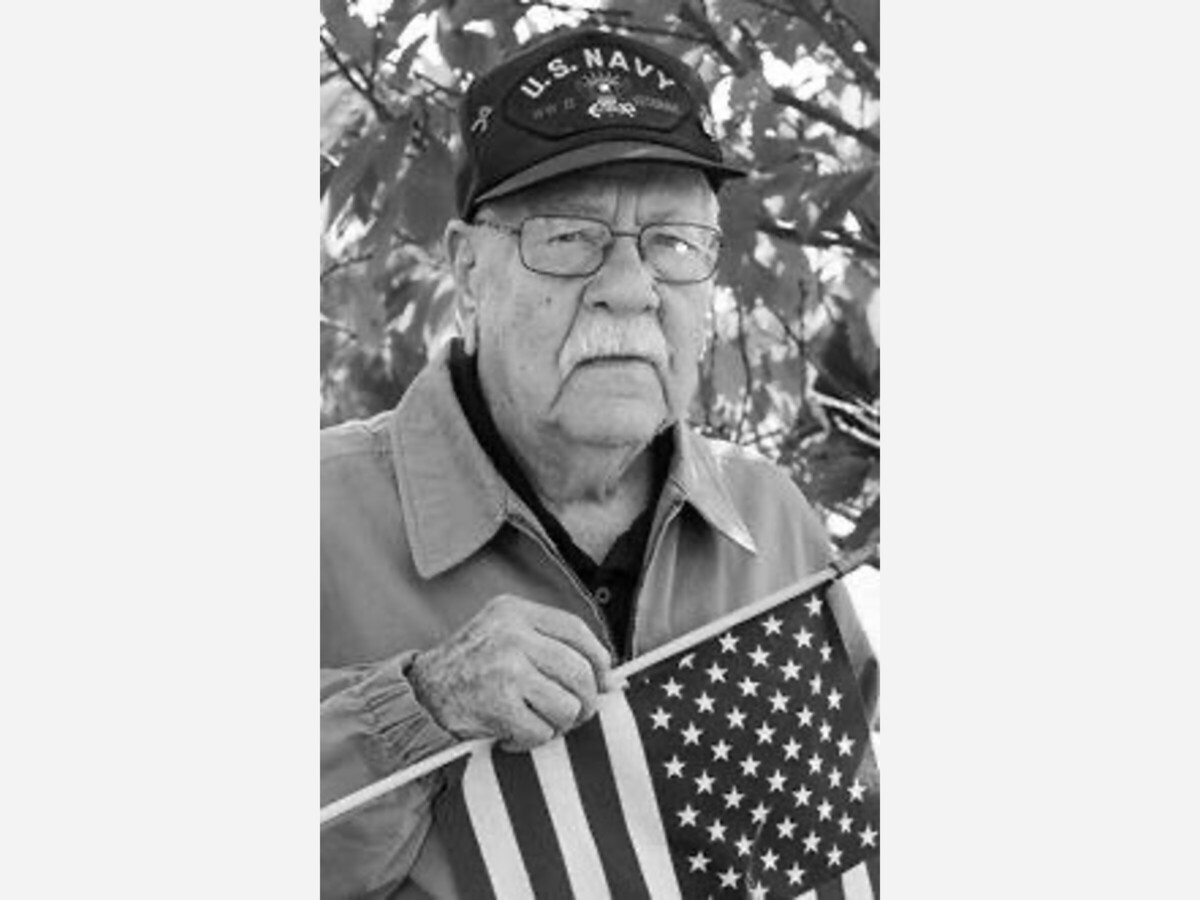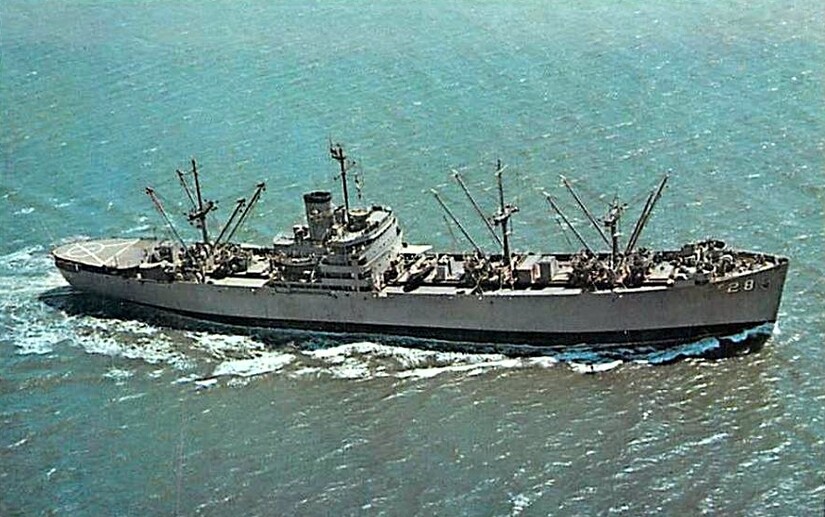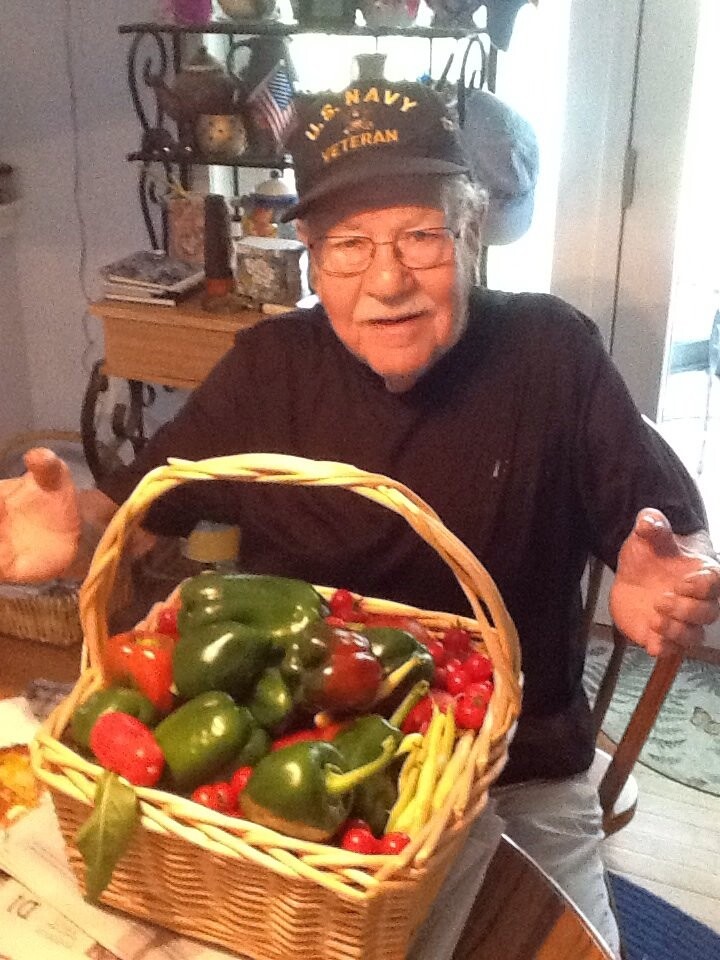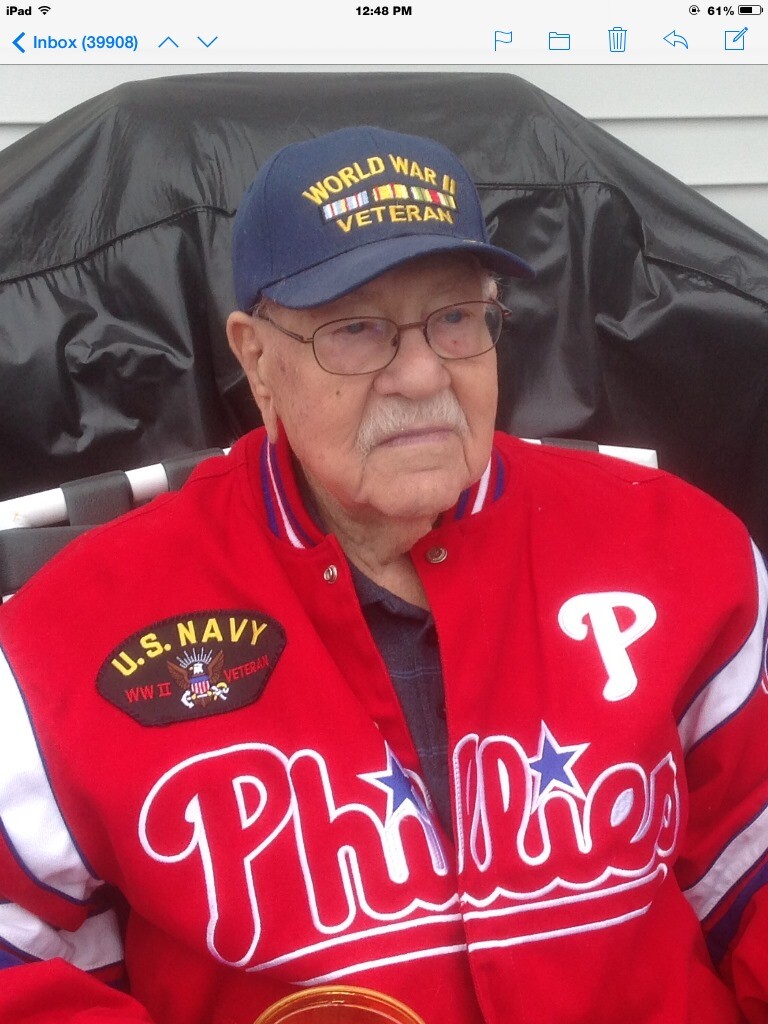Image

Ed.: As part of Studio B Art Gallery's "I AM: Proud" project, local writers and artists were encouraged to respond to the theme.
by Mike Strzelecki*
The world is short of heroes of late.
I’m not talking pop stars or NFL quarterbacks or Tik Tok dancers, but people of outstanding bravery and integrity who perform selfless deeds, seeking no recognition or attention in return. Valor for the sake of valor.
My Uncle Russ was one of the great heroes of World War II, performing an act of courage that helped save hundreds of lives. He never liked to tell his story, but it is a story that deserves to be told…needs to be told.
Russell Graham was born in Pottstown and lived for a time in both Ambler and Gilbertsville. He was all Boyertown at heart, though. Every Friday night he would hold court from his bar stool at The Hookies, and he owned a cabin on the banks of the Manatawny Creek, in Earlville, where our family would often gather for reunions.
Uncle Russ served in the US Navy during World War II. He quickly became a First Class Quartermaster, his responsibility being ship navigation. At the youthful age of 21, Uncle Russ was assigned to the USS Hyades. The Hyades was a colossal storage ship almost two football fields in length, that plied the oceans, resupplying battleships with food and equipment. It had a crew of 250 sailors.

Resupplying battleships during wartime is a dangerous endeavor, as the supply ships are exposed and vulnerable, moving through open water from ship to ship. As such, the Hyades was assigned an escort ship for safe passage, an equally massive battleship named the USS Warrington.
Totally unaware that danger was looming, the Hyades and Warrington set off together from Norfolk, Virginia, in September of 1944 and rounded the tip of Florida en route to Trinidad, just off the Venezuelan coast. What happened next has become legend. The two ships got swept up in one of the worst hurricanes ever recorded in the Caribbean Sea. This was before the naming of storms, but it goes down in history as the Great Atlantic Hurricane. Steady winds of 100-miles-per-hour winds whipped across the seas and 70-foot-high walls of water crashed onto ship decks. The Category 5 hurricane simply destroyed everything in its path.
Uncle Russ had a newspaper article that described the storm as such: “a screaming discolored sky; blinding rain; wind-whipped, rip-roaring seas that smashed against the destroyer’s port bow and buried her foredeck under avalanches of foam-laced brine.”
The storm moved so quickly that the pair of ships found themselves in a dire situation, swept into the storm’s maw. The Warrington was unable to hold its own against the mountains of crashing water. Swells battered the decks and pushed through cracks and vents in the ship, flooding the ship’s interior and shorting out electronics. Without power, the ship was unable to hold a line to fight the battering seas. It quickly slipped between waves to the sea bottom, taking with it hundreds of sailors. Four other naval ships disappeared that night, and others were washed up on shores.
Uncle Russ, only 21 years old at that time, was called to the helm of the Hyades during the height of the hurricane. He was asked to steer the ship at its most dire moment, and given two tasks: keep the ship afloat and rescue any possible survivors of the Warrington sinking. Uncle Russ and his crew steered and navigated the ship all day and night, fighting the swells. He cut through whitecaps and climbed huge walls of water. He and his shipmates located and saved from the swirling waters five officers and 68 other sailors from the Warrington.
Uncle Russ continued on, struggling to keep his ship bow pointed into the crashing waves. He was able to keep the Hyades afloat for another full day until the seas calmed. He immediately set off to provide food and supplies to the battleships that survived one of the worst hurricanes ever recorded in weather annals. That night, my Uncle Russ helped save hundreds of lives, thanks in part to his deft navigation and steering skills, but moreso, thanks to his courage. There was a book written about this episode, titled “The Dragon’s Breath: Hurricane at Sea,” by Robert Dawes.
Soon after the war, Uncle Russ left the Navy, attended Temple University on the GI Bill, and married my Aunt Jean. They started a very robust family tree, whose branches spread wide. It includes five children and many grandchildren and great grandchildren. He held a strong sense of adventure and wanderlust his entire life. He spent a huge chunk of his career at Honeywell, beginning as a credit manager and eventually becoming head of the Arabian Program at Honeywell International. He made more than 25 visits to the Middle East.
Later in his life, Uncle Russ was interviewed by a local newspaper about his war heroics. What was most important to him was that the writer didn’t show too much flattery in the article and did not make my uncle out to be too braggadocious. If you knew my Uncle Russ, this would not surprise you. He was uncomfortable talking about himself; he wanted to know how “you” were doing. He placed family above all other life forces, making sure we stayed tight and in touch.

When I would ask him about his adventure, he would dismiss it as not being that big of a deal. He was the height of humbleness.
Uncle Russ passed away in 2016, at the age of 94. My children knew him, but were unfortunately too young to bond with him. Because of age, my children will never get to intimately know any member of the Greatest Generation. And this pains me. Selfless service, deep compassion for humanity, no need for recognition or attention, actions without hesitation – these are all attributes exhibited by my Uncle Russ and other members of the Greatest Generation. We could use more role models like my Uncle Russ today.

* Mike Strzelecki is a freelance travel and outdoor writer, and 1981 graduate of Boyertown Area Senior High School. He writes from his house in Baltimore, Maryland. In his spare time, he joins his wife on adventures around the country observing and photographing birds.
The Bloomers - Post-Pedestal.docx
Mike,
Enjoyed the article. I linked a poem I wrote a few months ago on the occasion of my Aunt Mary Ann's passing. She was 95.
I did not include her as part of the Greatest Generation, as she was born in 1928 - too old for WWI and too young for WWII.
Your tribute and the one by Craig Bennett a few days ago each try to give proper love to a generation of people by focusing on one prima example.
The attached poem has the same angle, except the cross-section of people is lightly different.
Hope you like it.